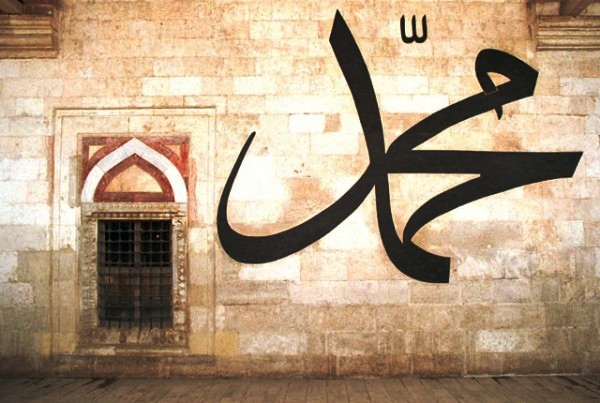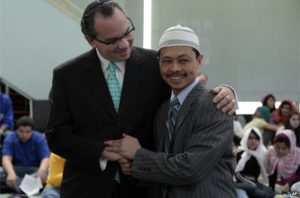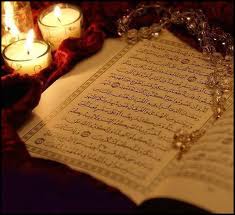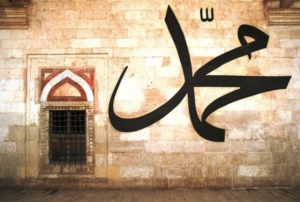 Who is Muhammad (pbuh)?
Who is Muhammad (pbuh)?
by Mahbubur Rahman
“Perhaps the world was never in greater need of an accurate account of Prophet Muhammad’s (Allah’s blessings and peace be upon him) life than it is now.” So states Adil Salahi, author of “Muhammad: Man and Prophet 1. After 9/11,” for whatever reason(s), many people began asking themselves: Just who is this Muhammad? As a result, awareness of Islam and the Prophet Muhammad (Allah’s blessings and peace be upon him) has increased considerably. And yet so many people still do not really know who he was and what legacy he left behind. The recent infamous caricatures are a further reminder that many people’s understanding about Muhammad (Allah’s blessings and peace be upon him) is indeed flawed and far from the facts.
Such a lack of knowledge is, however, rather surprising, for unlike most other prophets or religious personalities whose life stories are full of myths and legends, Muhammad (Allah’s blessings and peace be upon him) lived in the full light of history. Almost every aspect of his life was recorded by those who lived with him and knew him intimately, and so we do not have to guess at what he said or did. When we read this vast body of literature, we can see that he was a man of exalted character and compassion, one who was kind and considerate to all people, regardless of how they treated him, and even to animals and plants. His revolutionary message changed not only his own society, but the very course of history, facts that even his bitterest enemies have acknowledged. Today, more than 1,400 years later, more than 1.5 billion people revere him and follow him as God’s last messenger.
The veneration of Muhammad (Allah’s blessings and peace be upon him) is not limited to his followers, however. Many great philosophers, thinkers, and reformers have praised him and said that it would be to humanity’s great benefit to follow his teachings. George Bernard Shaw called him “the savior of humanity” and said: “I believe that if a man like him were to assume the dictatorship of the modern world, he would succeed in solving its problems in a way that would bring it much needed peace and happiness.” 2 Echoing him, French historian Lamartine wrote: “As regards all standards by which human greatness may be measured, we may well ask, is there any man greater than he?” 3 Similar statements were made by Thomas Carlyle, Edward Gibbon, and Mahatma Gandhi, to name only a few.
Also Read: Imaam Yakhsyallah: Nurture Love for the Prophet, One Will Be with Whom One Loves
Born in Makka in 570
Born in Makka in 570, Muhammad (Allah’s blessings and peace be upon him) grew up as an orphan: his father died before he was born, and his mother died when he was only six years of age. He remained unlettered along with most of his contemporaries. But His noble and upright character, as displayed in his dealings with people while he was growing up, raised his status so high in the eyes of his fellows that they nicknamed him al-Ameen (the Trustworthy) long before he was chosen by God as His final messenger. Only after Muhammad (Allah’s blessings and peace be upon him) declared his prophet-hood did the Makkan polytheists turn against him.
When the Makkan leaders unleashed their hostility against him and his companions, he could still be heard saying: “O Allah! Forgive my people, for they don’t know.” For example, when he went to Ta’if, a village about 50 miles southeast of his hometown, Makkah, to spread Islam, they set the street urchins upon him, who chased him and threw rocks at him until they drove him out of town. Even at that point, when he was utterly exhausted and bleeding from head to foot, all he said was, “O my Lord, guide my people along the true path, as they are ignorant of the truth.” This is just one of the many examples in the life of the Prophet who faced constant death threats, actual attempts on his life, and abuse and humiliation at the hands of those threatened by his simple yet profound message: there is no god but Allah and Muhammad (Allah’s blessings and peace be upon him) is His Messenger.
When the Makkan Quraish forced him and his companions to leave Makkah, the prophet migrated to Madinah. Even in Madinah, the Prophet and his followers were not left alone to practice their religion. The Makkan leaders rallied forces to eliminate him and his followers. It was in this context that the Prophet took up arms to defend himself and his followers. Yet, while doing so, he never compromised the sacred principle of sanctity of life and the ethics of just war. He never allowed the killing of anyone except those involved in the fighting; he issued clear orders against killing of civilians, including women, children, and even those who were engaged in worship of any kind. Later when Muhammad (Allah’s blessings and peace be upon him) prevailed over the Quraish and conquered Makkah, he pardoned his enemies and let them go free.
Also Read: Thanksgiving: An Islamic Perspective
Today no matter how Islamophobes taunt him or label Islam, the fact is that Prophet Muhammad (Allah’s blessings and peace be upon him) never preached violence. It is simply mind-boggling that he would be made responsible for any individual Muslim’s misreading of his message or committing any mischief in the name of Islam. Contrary to the widely held notion in the west, the very concept of ‘holy war’ even does not exist in Islam. According to Islam, war can only be characterized as either just or unjust, not holy. The Qur’an is categorical in denouncing all wars of aggression. “And fight in God’s cause against those who wage war against you, but do not commit aggression-for, verily, God does not love aggressions.” (Quran 2:190) The Qur’an also forbids Muslims from attacking anyone who allows others to live in peace. “Thus, if they let you be, and do not make war on you, and offer you peace, God does not allow you to harm them.” (Quran 4:90)
Muhammad PBUH preached mercy and respect to all of God’s creation
As a matter of fact, Muhammad preached mercy and respect to all of God’s creation. His heart was filled with love for people irrespective of their caste, creed, color or gender. He advised his Companions to regard all people as their brothers and sisters. He said, “You are all Adam’s offspring and Adam was born of clay.” The Prophet is also reported to have said, “By God, he is not a believer, by God, he is not a believer, by God, he is not a believer, with whom his neighbors are not secure.” The Prophet never ever tolerated any indecent manner, let alone any injustice done to anybody. He warned the Muslims against the mistreatment of non-Muslims in a Muslim-dominated land by saying: “Whoever oppresses the non-Muslim subjects, shall find me to be their (oppressed people’s) advocate on the Day of Judgment (against the oppressing Muslims)”. He also said, “Those who commit injustice upon people in this world will be the most losers in the hereafter and will find their place in the Hellfire.” The Prophet thus taught people how to live among others like flowers, not like thorns.
The Prophet’s own example was testified by Anas ibn Malik, who served the Prophet for ten years. He said that the Prophet never ever rebuked him. “When I did something, he never questioned my manner of doing it; and when I did not do something, he never questioned my failure to do it. He was the most good-natured of all men.” Indeed, the Prophet was an extremely tender-hearted person. “Repel evil with good” was his dictum and policy. He was considerate to his family and friends. He was a loving father, a generous husband and a caring neighbor. His gentleness, dignified demeanor, his universal benevolence and courtesy, his equal treatment of friends and strangers, the powerful and the weak and his generosity to the latter naturally endeared him to those who came in touch with him, and gained him respect, love and admiration. He was the exemplifier and embodiment of all the best a person can think of or aspire to be.
Also Read: Achieving the Position of Fasting Expert with Kindness of Morality
In short, Muhammad (Allah’s blessings and peace be upon him) preached a religion, founded a state, laid down a moral code and brought all out reforms. His sublime teachings have passed the test of time and place in that these are universal values sought after by mankind in all ages and places. Following his footsteps is the surest way to establish “kingdom of God” on the earth once again.
The world has witnessed many prophets including the towering figures of Abraham, Moses and Jesus (peace and blessings of God be upon them all), and Muhammad (Allah’s blessings and peace be upon him) paid high tributes to all of them and made it incumbent upon his followers to do the same. Many great thinkers, philosophers and leaders also made great contributions to human civilization, but none of them superseded the achievements and impacts of Muhammad . His greatness is truly unique. A mercy to the mankind, he is the most remarkable man ever set foot on this earth.
How can anyone mock and malign such an icon of history–someone who is the pride of whole humanity? Surely, it’s either ignorance or prejudice which is breeding this sort of bigotry. It’s also an insult on human conscience and intelligence.
Muhammad (Allah’s blessings and peace be upon him), the man, is the greatest testimony to the truth he preached. Let us know this man, explore his truths and make this world a better place to live in. (T/P3/R01)
Also Read: The Power of Charity in Ramadan
Mi’raj Islamic News Agency (MINA)
Source: Islamicity.com
Also Read: Ramadan Brings the Change



































 Mina Indonesia
Mina Indonesia Mina Arabic
Mina Arabic